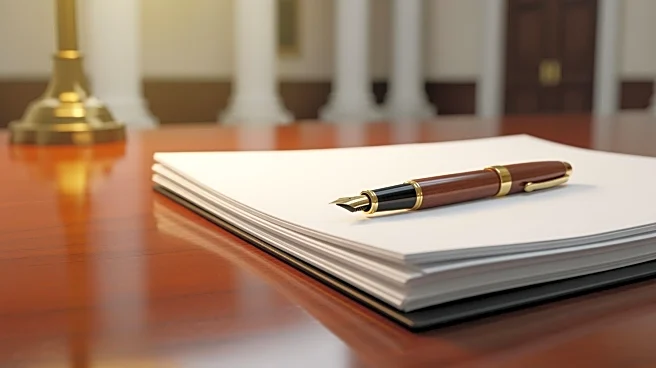What's Happening?
President Trump has announced plans to deploy 800 National Guard members to Washington, D.C., in an effort to tackle crime and homelessness. This move follows his directive to increase federal law enforcement presence in the city. The deployment is part of a broader strategy to take control of the city's police department, a decision that has sparked controversy and concern among local officials. Mayor Muriel Bowser expressed unease over the unprecedented action, highlighting that crime rates have been declining in recent years. The deployment is authorized under the Home Rule Act, which allows the president to take control of the police department during emergencies.
Why It's Important?
The deployment of National Guard troops in Washington, D.C., represents a significant federal intervention in local governance, raising questions about the balance of power between federal and local authorities. This action could set a precedent for future federal involvement in local law enforcement, potentially impacting how cities manage crime and homelessness. The decision has drawn criticism from local leaders and civil rights advocates, who argue it undermines local autonomy and could lead to increased tensions. The move also highlights ongoing debates about the effectiveness of federal intervention in addressing urban issues.
What's Next?
The deployment is expected to begin in the coming week, with National Guard members supporting law enforcement activities. The duration of the deployment is uncertain, as it depends on the president's assessment of law and order conditions. The decision may face legal challenges, as local officials and civil rights groups consider their options. Additionally, Congress may need to approve an extension if the deployment exceeds 30 days. The situation could lead to further political and legal debates about federal authority and local governance.
Beyond the Headlines
The deployment raises ethical and legal questions about the use of military forces in civilian law enforcement. Critics argue that such actions could erode civil liberties and set a dangerous precedent for federal overreach. The move also highlights broader societal issues, such as the need for comprehensive solutions to homelessness and crime that go beyond law enforcement. The situation underscores the importance of collaboration between federal and local governments to address complex urban challenges.









